-
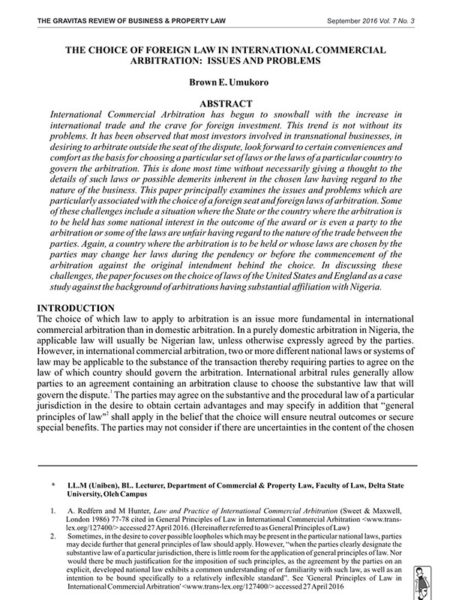
The Choice of Foreign Law in International Commercial Arbitration: Issues and Problems
0₦2,500.00Brown Umukoro, Lecturer, Faculty of Law, Delta State University, Oleh in his article “The Choice of Foreign Law in International Commercial Arbitration: Issues and Problems” examines how the expected outcome or intended benefit of a choice of foreign law in international commercial arbitration may be frustrated by several factors including law and public policy of the foreign country and change in laws during the pendency of arbitration. He concludes that the Decolonisation and Law of the Seat theories do not adequately address the concern of investors and advocates a comprehensive code of rules for the resolution of conflict between the lex arbitri and other systems of law.
-
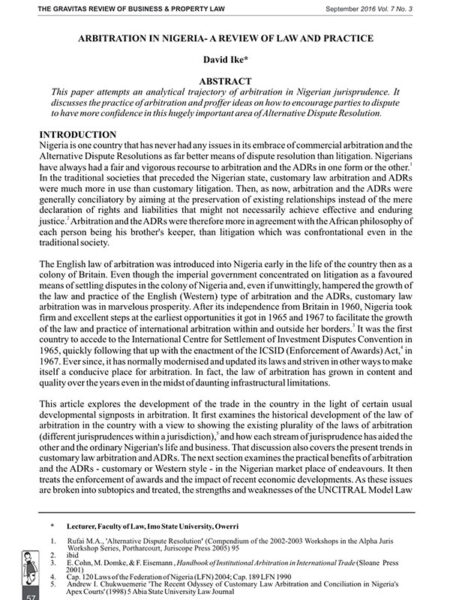
Arbitration in Nigeria – A Review of Law and Practice
0₦2,500.00David Ike, Lecturer, Faculty of Law, Imo State University, Owerri in his article “Arbitration in Nigeria-A Review of Law and Practice” gives an overview of the development of arbitration and its practice in Nigeria. He discusses current issues in arbitration including the constitutionality of section 34 of the Arbitration and Conciliation Act, pre-emptive court proceedings, recognition and enforcement of arbitral awards, and arbitrators’ fees.
-
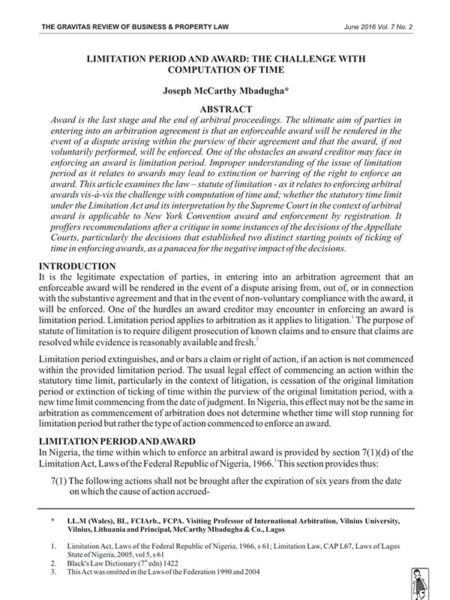
Limitation Period and Award: The Challenge with Computation of Time
0₦2,500.00Joseph Mbadugha, SAN, Visiting Professor of International Arbitration, Vilnius University, Lithuania and Principal, McCarthy Mbadugha & Co confronts a daunting issue in “Limitation Period and Award: The Challenge with Computation of Time.” He argues that as the courts have been strict in holding that, in enforcement of arbitral award, limitation period runs from the date of accrual of the original cause of action in the arbitration agreement and not from the date of the arbitral award, there could be two ways of enforcing an arbitral award with two distinct ticking clocks: enforcement of an award as a judgment of the court and enforcement as a breach of implied promise to perform a valid award. In the former, time begins to run from the date of accrual of the original cause of action that gave rise to the arbitration, while in the latter, time runs from the date the award debtor refused to perform the award.
-
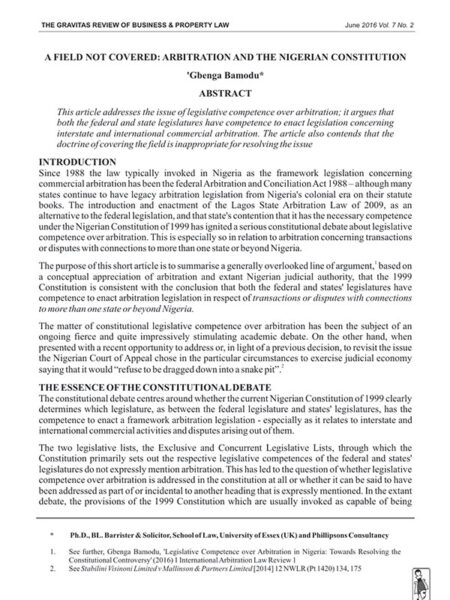
A Field Not Covered: Arbitration and The Nigerian Constitution
0₦2,500.00Dr Gbenga Bamodu of the School of Law, University of Essex (UK) in a counterpose to a previous article published in The Gravitas Review argues in “A Field Not Covered: Arbitration and The Nigerian Constitution” that the doctrine of “covering the field” is inappropriate in the context of legislative competence over arbitration in Nigeria in holding that states’ legislatures cannot legislate on arbitration in view of the federal Arbitration and Conciliation Act 1988. Synthesising a range of sources including decided cases, he posits that states’ legislatures also have legislative competence over arbitration concerning interstate or international transaction disputes.
-
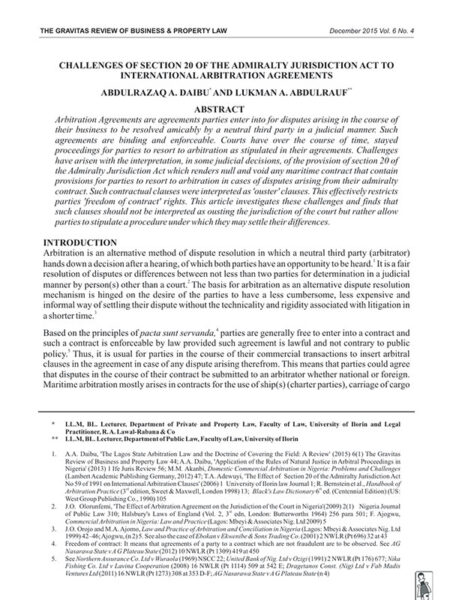
Challenges of Section 20 of the Admiralty Jurisdiction Act to International Arbitration Agreements
0₦2,500.00Abdulrazaq Daibu and Lukman Abdulrauf, Lecturers, Faculty of Law, University of Ilorin in “Challenges of Section 20 of the Admiralty Jurisdiction Act to International Arbitration Agreements” considers the interpretation of section 20 AJA by some courts and the challenges such an interpretation poses to parties ‘freedom of contract’ rights and maritime arbitration.
-
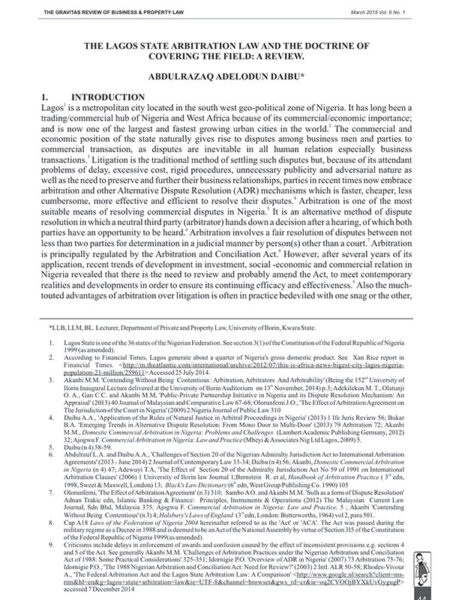
The Lagos State Arbitration Law and the Doctrine of Covering the Field: A Review
0₦2,500.00Abdulrazaq Daibu
Is the Lagos State Arbitration Law of 2009 Dead on Arrival? Abdulrazaq Daibu, Lecturer, Department of Private and Property Law, University of Ilorin examines the issue in “The Lagos State Arbitration Law and the Doctrine of Covering the Field: A Review”.
The Gravitas Review of Business & Property Law



